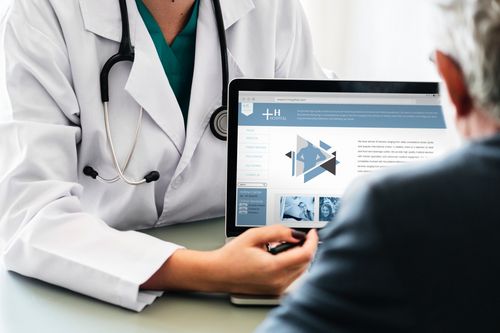Zero Trust for SMEs: Achieving Strong Security with Limited Resources
Zero Trust strengthens SME network security without breaking the bank. Discover practical, cost-effective steps to get started.

The escalation of ransomware and trojan malware combined with the lack of endpoint security caused the healthcare sector to suffer from massive data breaches in 2019. As healthcare organizations rely on a multitude of medical devices, IoT devices, and legacy computers to send and receive electronic health records, the number of endpoints that need to be managed and protected is staggering.
Studies have shown that healthcare, the seventh-most targeted sector for cyberattacks, experienced a 60 percent increase in threat detections during the first three quarters of 2019. Those breaches are expected to cost the sector $4 billion. Unfortunately, researchers expect cyberattacks within the healthcare sector to continue to increase throughout 2020.
Protected Health Information on the Dark Web
Medical records have always been prime targets for hackers due to the amount of sensitive information they contain. Social security numbers, date of birth, insurance information, and credit card details are often sold on the dark web and used for identity theft. According to Experian, patient records can sell for up to $1,000.
Last year, the American Medical Collection Agency (AMCA) fell victim to a devastating data breach that impacted more than two dozen providers including Quest Diagnostics, LabCorp, BioReference, and Clinical Pathology and approximately 25 million patients. The eight-month hack cost the debt collector millions of dollars and ultimately forced AMCA to file for Chapter 11 bankruptcy.
In a recent report, Ponemon Institute found that the average cost of a healthcare data breach is $6.45 million. Shockingly, it takes nearly a year, about 279 days, to identify and contain a breach while the average lifecycle of a malicious attack, from breach to containment, is 314 days.
It's Time for a Security Checkup
To protect patient privacy, maintain productivity, and continue to deliver high-quality medical care, healthcare organizations must follow security best practices such as utilizing a private WiFi connection, implementing two-factor authentication on every device, and encrypting network communications with virtual private networks (VPNs). End-to-end encryption guarantees that sensitive data is impossible to decipher and renders it useless to cybercriminals.
For healthcare organizations looking to securely share protected health information (PHI) with pharmacies or insurance providers, a remote access VPN will ensure that data is protected at every stage of the communications process – at device-level, while in transit, and when stored at its destination.
Centrally managed VPNs are particularly important as healthcare professionals turn to mHealth applications on mobile devices to communicate with patients and to deliver more timely diagnoses through remote consultations. Known to provide flexibility, efficiency, and scalability, managed VPNs offer healthcare organizations the protection they need to mitigate cyberattacks and data breaches as they provide patient care.
Interested in learning more? Contact us here.